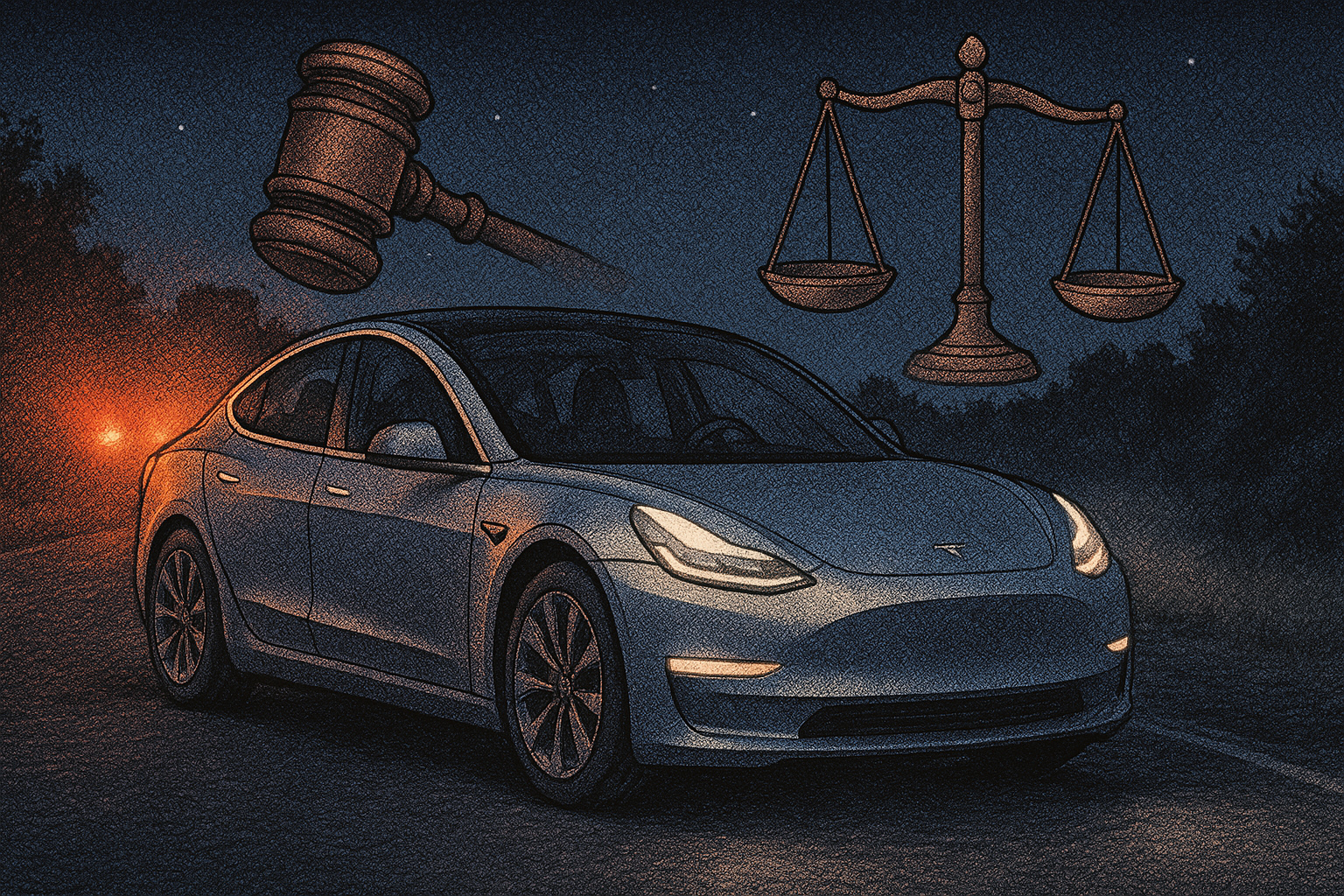In a major blow to Tesla, a federal jury in Miami found Elon Musk’s electric car company partly responsible for a 2019 crash in Florida that killed a 22 year old woman and seriously injured her boyfriend, awarding a staggering $243 million in damages against the automaker.
After six hours of deliberation, jurors concluded Tesla’s Autopilot system contributed to the deadly collision, rejecting arguments that the driver’s admitted negligence absolved the company of fault. The verdict capped a four year legal battle, one of the few Autopilot cases to reach trial.
The jury awarded a total of $329 million to the victims, $129 million in compensatory damages and $200 million in punitive damages. Of that, Tesla must pay the entire punitive award and one-third of the compensatory damages, equaling $242.5 million. Tesla was found 33% responsible for the crash; driver George McGee bore the rest of the blame.
Crash details and claims of design flaws
The accident occurred on a dark Key Largo road when McGee sped through flashing lights and a stop sign at 62 mph before hitting a parked Chevrolet Tahoe. The crash killed Naibel Benavides Leon and left her boyfriend, Dillon Angulo, with multiple fractures and a traumatic brain injury. McGee admitted he was distracted by a dropped cellphone but testified that he trusted Autopilot to warn him or stop in time.
I trusted the technology too much.
McGee said in court.
Attorneys for the victims argued that Autopilot was engaged and had design flaws, including allowing use on roads it wasn’t intended for and failing to disengage when drivers became inattentive. They also accused Tesla of withholding key data and video from the moments before the crash, evidence later recovered by a forensic expert.
We finally learned what happened that night, that the car was actually defective. Justice was achieved.
said Neima Benavides, the victim’s sister.
Tesla vows appeal, disputes Autopilot link
Tesla called the verdict “wrong” and warned it could hinder efforts to deploy lifesaving tech.
Today’s verdict is wrong and only works to set back automotive safety and jeopardize Tesla’s and the entire industry’s efforts to develop and implement life saving technology.
the company said in a statement. It added:
No car in 2019, and none today, would have prevented this crash. This was never about Autopilot; it was a fiction concocted by plaintiffs’ lawyers blaming the car when the driver, from day one, admitted and accepted responsibility.
Tesla plans to appeal, arguing the trial was marred by “substantial errors of law and irregularities”.
Industry impact
Analysts say the size of the award, including a $200 million punitive hit, could rattle automakers betting on semi-autonomous driving tech.
It’s a big number that will send shock waves to others in the industry.
said Dan Ives of Wedbush Securities.
The case also reignites debate over Tesla’s use of the term “Autopilot” which plaintiffs’ attorney Brett Schreiber said misleads drivers into overestimating the system’s capabilities. “
Words matter, If someone is playing fast and loose with words, they’re playing fast and loose with facts.
said Brett Schreiber, plaintiffs’ attorney.
The verdict comes as Musk prepares to launch a driverless taxi service in several U.S. cities. But the Miami ruling underscores a fundamental question for Tesla and the industry: Can consumers trust autonomous technology when companies overpromise what it can do?
